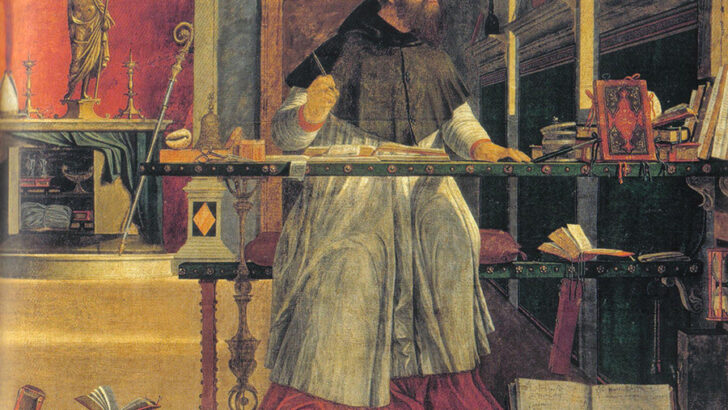Journeys of the Mind: A Life in History, by Peter Brown
(Princeton University Press, £38.00)
Peter Brown, a Dubliner, is probably the most famous historian of early Christianity alive today. This is his autobiography (although thus to pigeonhole it, is to do this magnificent book a grave disservice, for it is far more than just an autobiography) and it will be eagerly welcomed by the world of academe, especially by historians of late antiquity, who have been indebted to his research since the 1960s.
It will also be read with pleasure, amusement and great enjoyment not only by academics but by all those for whom he wrote– the equivalent of the “aunts” to whom he refers several times as his intended ‘reading public’ (p. 66 “persons who … had received a good high school education but had not continued to the university”).
Aspects
There are so many aspects of this large (699 pp.) volume that one could explore and comment on, but perhaps it is this sheer human interest at all levels which make it such a fascinating read. The characters, both known and unknown, both famous but also obscure and unsung, come alive in the pen portraits in these pages. We are treated to vignettes from the Brown household: Rory, Aunt Mai’s dog “the result of an amorous encounter between a pedigree spaniel and a Labrador” (p. 68); little Peter donating his Mickey Mouse handkerchief to the hippopotamus; and then very much later the moving description of his father’s last illness and the sobering account of his widowed mother’s last years.
But there are excursions into events and places much more serious, perceptively analysed by Brown, and showing the various threads which make up the tapestry of this rich life, the “new landscapes” which “fed the imagination” (p.293), but still with his characteristically gentle and non-judgemental observations: Irish religion and society of the mid-twentieth century; the colonial system of his father’s involvement in the Sudan; the bewildering English public school system; life in the Oxford colleges in the 1950s; the very different life of the American universities; lecturing in European universities and his lengthy travels in Iran and the Near East, all brilliantly and vividly described and documented from letters and diaries.
Engrossing
He recounts in engrossing detail the conception and birth of all his great works, each one of them a massive contribution to that period of history which he has done so much to reappraise and identify: the world of “Late Antiquity”, of the Christian Roman aristocracy, of Augustine, of the desert ascetics; in the process introducing us to the trials and tribulations of an author and researcher.
The humility and the humour of this great academic historian shine out on every page of this monumental book”
He explains for us his intention: “As a historian, I felt that my first duty was to listen carefully to the ancient Christian writers to make their views … intelligible to modern readers. I wanted to catch those voices from a distant age …” (p. 646). This is what he has been doing for more than sixty years and all today’s students of the late Classical world are deeply in his debt for bringing that era alive.
The humility and the humour of this great academic historian shine out on every page of this monumental book (in his sorrow at hearing in Rome of the death of his mother he helped “an old lady by carrying her shopping bag up the hill” [p. 685]).
It will be read with enormous interest by all those who have been touched by his work as an historian, a lecturer, a writer, a friend, a colleague and perhaps most of all, as someone whose sheer humanity has enabled him to rise above the sectarianism and conflict which he so often saw around him. Now, still indefatigable though in his late eighties, he is reading texts in Ge’ez, the classic language of Ethiopia, because there is still “room for many such journeys of the mind” (p. 699).
*
A historian and theologian, Dr Patricia Rumsey, a Poor Clare of the of the community at Arkley, is an Hon. Associate Professor at the University of Nottingham.


 St Augustine, as conceived by the painter Vittore Carpaccio, pausing for enlightenment (painted circa 1504)
St Augustine, as conceived by the painter Vittore Carpaccio, pausing for enlightenment (painted circa 1504) 